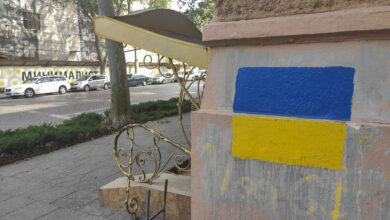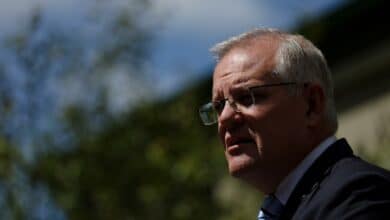Duque orders public forces to dismantle road blockades in Colombia

(Update 1: adds views of CNP, Yumbo protests pars 9-15)
Bogotá, May 17 (EFE).- Colombia’s president on Monday ordered the public forces to deploy their “maximum operational capacity” to dismantle road blockades erected by protesters during the past 20 days of demonstrations, in which around 40 people have died.
“There is no right in Colombia to block roads; no right to affect the rights of others. I have instructed the Public Force to unblock roads in the country, working with mayors and governors, and in strict compliance with human rights,” Iván Duque said in a statement.
The protests in Colombia, which began on Apr. 28 against the government’s now-withdrawn tax reform proposal, also demand, among other issues, the cessation of police brutality to which organizations such as Temblores blame for 39 deaths; the withdrawal of the health reform project, which includes privatizations; the strengthening of a mass Covid-19 vaccinations and basic income of at least a monthly legal minimum wage.
The president said he based his decision on the fact that peaceful protest is allowed in Colombia, but illegal roadblocks have affected millions of citizens who have not been able to get their products.
“We have also seen the impact that it has brought to the circulation of food, depleting entire cities,” said Duque, who two weeks ago deployed the army to help break the blockades.
He also announced that from July 1 there will be a employment generation program for young people between 18 and 28 years old, in which 25 percent of their salary will be subsidized.
The government has continued to ask that protesters cease the roadblocks because they affect the battered economy of the country that has not been able to function at 100 percent due to the lockdowns adopted to stop the spread of the coronavirus.
The economic losses in 15 days are estimated at more than 6.5 trillion pesos (about $1.7 billion), according to the government.
Meanwhile, a delegation from the government, led by the High Commissioner for Peace Miguel Ceballos, met for the second consecutive day with the National Strike Committee (CNP) with the aim of establishing a negotiating table to find a way out of the country’s social crisis.
The CNP accused the government of “not wanting to negotiate ” or “provide guarantees” for the protests.
“The national government does not acknowledge the gravity and dimension of state violence against protesters. It does not acknowledge the cases reported by human rights organizations,” said the CNP, which convened another nationwide strike for Wednesday.
The CNP said that the “real response” it received from the government on Monday to its requests to start negotiations was “brutal police violence since last night (Sunday)” in the municipality of Yumbo in southwestern Colombia, where one person has died and at least 22 were injured.
Local authorities say that riots in the city near Cali broke out on Sunday night when people tried to vandalize a police station, which sparked clashes between citizens and led the mobile anti-riot squad (Esmad) to intervene.
An explosion was also reported on Monday near the headquarters of the state-owned oil company Ecopetrol, with no reports of injuries or deaths so far.
“I want to ask the national government to stop this situation of violence and aggression against my community, against my municipality. We, yumbeños, are peace-loving people, hardworking. I thank the international organizations that have come to Yumbo to ensure freedom of expression in the protest,” Yumbo Mayor Jhon Jairo Santamaría said in a statement.
To deal with the protests that continued Monday with riots in cities such as Yumbo and Neiva and peaceful sit-ins in other municipalities, the government activated a panel for evaluating guarantees for public demonstrations. EFE
jga/tw





